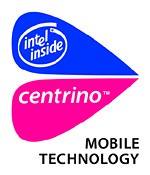
| Home of Wireless Applications |

|
Daily Newsletter
|
 |
Mobile phone users take to multimedia games .
Playing games is nothing new for Lee Chang-ho, 28. He is good at Starcraft, a popular computer game, and often spends hours with his friends at PC salons in Seoul. But his playing habits have changed recently - thanks to his mobile phone.
One of his favorite games these days is "Tetris," which runs on his phone. Though the screen is small and the buttons close together, Lee finds it fun and convenient.
"Wherever I go, I can play the game on my mobile phone, and Tetris is good for killing time on a subway," Lee says.
A quick look at people on the subway in Seoul reveals at least a couple of young people clicking buttons on their mobile phones, playing Tetris and other games. Even those in their 30s are joining the trend, toying with electronic card games like poker.
The thriving business of mobile games, bolstered by the country's solid wireless phone industry, is good news for local developers like Com2us.
"The market is growing fast, and the outlook for this year is also positive, though the growth rate might slow down a little bit due to the economic downturn," says Um Ji-hong, an official at the mobile Internet division at Com2us.
Com2us, Korea's largest mobile game developer, posted 12 billion won in sales last year.
"A growing number of mobile phone users are now playing games on their handsets, and the user group is also expanding from the teens to other age groups like the 30s," Um says.
In January alone, the company sold about 1 million copies of "Fish Cake Tycoon 2," a business simulation game widely regarded as addictive. The smash hit game earned the 2003 Best Mobile Game award from Mplug, a leading mobile game portal, and has so far brought in 1.5 billion won.
Com2us, established in 1996, began to provide its mobile game software to local wireless carriers in 1999 when the domestic mobile content market was still in its infancy.
The company's growth as a major mobile game developer went in lockstep with the explosive advance of Korea's mobile phone and content industries beginning in 2000. At the time, major mobile carriers like SK Telecom Co. began to focus on games and related services to develop new sources of income.
Domestic handset manufacturers like Samsung Electronics helped kick-start the mobile game industry by launching high-end multimedia phones with bigger color screens, and the upgrade of the mobile network paved the way for faster commercialization.
SK Telecom, KTF Co. and LG Telecom Co. are now offering third-generation mobile phone services to more than 34 million subscribers, allowing for a quick download of mobile games and other multimedia content over the network.
Com2us, which now has 50 developers, is offering 70 mobile game titles to the three Korean carriers and plans to expand its services to overseas markets.
The mobile game market, valued at 130 billion won last year, is expected to welcome a new trend this year. In the past, most users favored simple games like Tetris, but as the handsets get more sophisticated, complicated role-playing and other network-based games are gaining popularity.
The shift means a bigger profit for game developers and carriers. For instance, once users download Tetris, they don't have to pay every time they play. But if they download network-based games, they have to access the mobile Internet network to play - and carriers can collect fees.
Another related development is that the Korean government has allowed carriers to provide handset subsidies for smart phones. Korea strictly bans mobile carriers from offering handset subsidies in return for subscription plans. But the government recently decided to loosen up the regulations for smart phones - which have larger screens and more functions than regular cell phones - and personal digital assistants.
The move is expected to lower the market prices of these products, both key channels for mobile games. Smart phones are ideal for playing multi-user network games and some people are already taking advantage with a mobile version of Lineage, a popular medieval fantasy network game developed by NC Soft.
Moreover, local game developers are making a greater contribution to the country's export drive. According to the Korea IT Promotion Agency, the country exported digital content worth $235.7 million in 2003, up 141 percent from a year earlier. Of the total, $174.8 million came from online and mobile games.
KIPA forecast that mobile game exports, which stood at 4 billion won in 2003, would more than double to 10 billion won this year, drawing strength from the country's fast-growing wireless multimedia content and solutions sector.
But mobile game developers in Korea want the government to do more to promote the sector. The Korea Venture Forum, an information technology industry association, recently said 75 percent of mobile game developers who responded to a survey expressed dissatisfaction with government policies. Users also want carriers to lower network access fees for mobile games.
Lee Chang-ho, who enjoys playing stand-alone games like Tetris, says he is willing to play network-based games on his handset only if the network fees go down. "Playing network games is cool, but I don't want to spend too much money on it yet," he says.
Copyright
2004 © Vovida Research, All rights reserved.